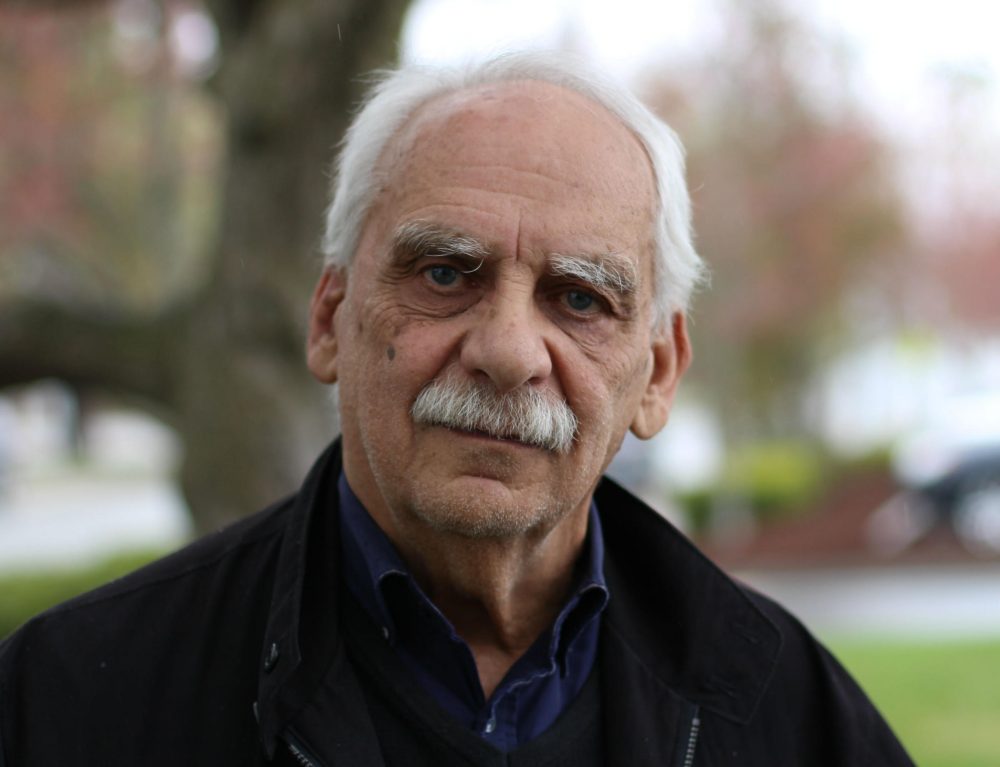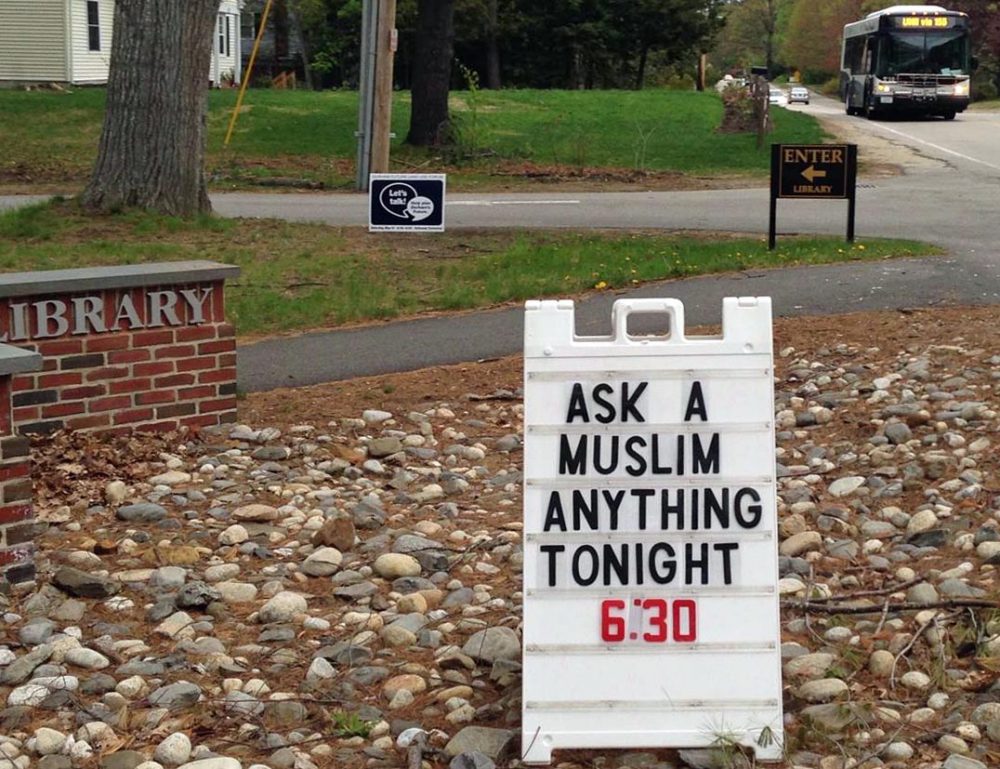Advertisement
With 'Ask A Muslim Anything' Events, N.H. Man Hopes To Tackle Misunderstandings Around His Faith

Many Muslim-Americans will tell you that this is a tough time for them. From the 9/11 attacks to President Trump’s proposed travel ban, Muslims in America feel besieged by discrimination and misunderstanding.
So Robert Azzi, a Lebanese-American Muslim who lives in Exeter, New Hampshire, is hoping to clear up some of that misunderstanding by encouraging dialogue with an invitation to "Ask a Muslim Anything."
That’s what Azzi calls the series of conversations that he's been leading at community centers, churches and town halls across New Hampshire. At a recent event in the town of Dublin, in the southwestern part of the state, he welcomed a small audience with the traditional Muslim greeting.
"As-salamu alaykum. Peace be upon you."
Azzi is a veteran photojournalist who spent years in the Middle East after growing up in New Hampshire, where there are very few Muslims. Azzi started these conversations a year and a half ago because of what he saw as growing Islamophobia. He wanted to address people’s fears and questions head on.

"I challenge you to ask me challenging questions," Azzi told his audience in Dublin. "There’s no such thing as a stupid question."
Among the questions he got on this night was: "Why are so many people in this country afraid of Muslims?"
"It’s really interesting to me about why people are fearful," Azzi responded.
Azzi traces it back to the 9/11 attacks, which he says encouraged the false impression that that's when Muslims suddenly arrived in America, when in fact they have been here for centuries.
He argues that the fear was ginned up by the so called "birthers" who falsely claimed that President Obama was a Muslim who was not born in America. Azzi points out that Trump led that charge, and he argues that as a presidential candidate, Trump rode that fear all the way to the White House.
"He’s running for president by painting a crescent on my forehead and a target on my back," Azzi says with more than a hint of anger in his voice. "And therefore, all Muslims must be foreign. All Muslims must be terrorists — and this is when I started getting the calls.”
Advertisement
The threatening phone calls also came with hate mail. So this is personal for Azzi. But he’s convinced that hearing directly from an American Muslim like him — someone who reveres America's pluralistic traditions as well as his faith — is the best way to break down intolerance.
A few nights later, at the Community Church in the neighboring town of Harrisville, Jack Calhoun posed a question that Azzi often hears: "Why don’t we hear more condemnation of terrorism in the name of Islam from the Muslim community?"
Azzi offers a terse answer: "Because you’re not listening."
He points out that Muslims from Tehran to Istanbul to New York denounced the 9/11 attacks, while scores of prominent Muslims around the world have condemned ISIS. But Azzi argues those stories are often overlooked in the current climate.
"Muslims denouncing terrorism and violence didn’t fit the binary narrative that had taken hold in this country of us versus them," Azzi says. "You know, there’s this great prayer in the Muslim community that says: 'Please God, don’t let it be a Muslim.' I don’t think you share that prayer.
"When you heard of Dylann Roof killing the worshipers in Mother Emanuel Church, I suspect there weren’t very many of you saying, 'please God, don’t let it be a Christian.'"
Azzi acknowledges that Islam has a problem with fundamentalism, but he points out that Christianity does as well. And he accepts that too many Muslim cultures oppress women.
"Do I condone the condition of women in most Muslim majority countries?" Azzi asks. "Absolutely not. I don't condone it. I think they live a terrible life, and they live under terrible conditions. [But] there is nothing in Islam that supports or embraces that kind of horror or terrorism."
And Azzi argues that America has been complicit in propping up some of the regimes that oppress women.
The Harrisville audience is, for the most part, sympathetic, welcoming Azzi’s effort to open a dialogue about Islam.
"I think it’s essential," Tom Porter said after the event. Porter is a lawyer, conflict mediator and Methodist minister who teaches at Boston University’s theology school. "And I like his approach. That he’s saying, ‘I’m not going to tell you all the good things about Islam; I’m going to answer your questions. I want to be in dialogue with you.' I consider him a soulmate."
Janet Selle, who came to Harrisville from Keene, said she appreciated what Azzi had to say about the "gentleness of Islam."
"It’s really important to hear the other side, and not just radicalism or the fundamentalists that he talked about. It’s important to hear where the belief really stems from," Selle said.
Azzi says these have been tough years for Muslims like him, but the positive response to these evenings gives him hope.
"It reinforces in me that these are really good people," Azzi says. "You know, the haters aren’t here. The haters don’t come out. This is a Muslim town hall. I’ve never used that line before, but that’s what it is.”
Azzi says he likes hosting these "Muslim town halls," but says he looks forward to the day when they’ll no longer be necessary.
This segment aired on August 14, 2017.
